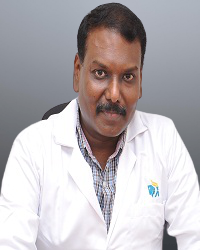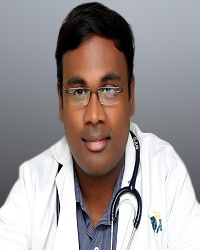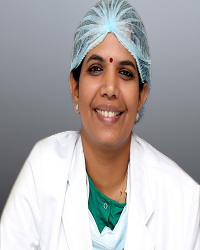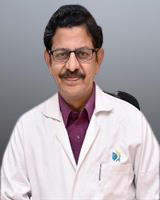Search Result: 4

Dr Arul Sundaresh Kumar L
M.B.B.S.,MS(ENT)
Registration No
900200
Language
English, हिंदी, தமிழ்

22 years experience overall

KK Nagar , Madurai
MON- SAT, MON- SAT(02:00 PM-03:00 PM)

Dr Arun Prabhu Ganeshan G
MBBS,MSENT,Head & Neck Surgery(Mumbai), Fellowship in Endoscopic Sinus and Skull Base Surgery.(Mumbai)
Registration No
178853
Language
English, हिंदी, मराठी, தமிழ்

12 years experience overall

KK Nagar , Madurai
MON, WED- SAT, MON, WED- SAT(10:00 AM-02:00 PM)

Dr Meena Priyadarshini P
MBBS,DNB(ENT),DLO
Registration No
30930
Language
English, हिंदी, தமிழ்

22 years experience overall

KK Nagar , Madurai
MON- SAT, MON- SAT(11:30 AM-05:00 PM)

Dr Pragatheswaran A
MBBS., DLO, FIAMS, MBA (Hospital Admin)
Registration No
2756945
Language
English, தமிழ்

35 years experience overall

KK Nagar , Madurai
MON- FRI, MON- FRI(01:00 PM-02:30 PM)
Frequently Asked Questions for Laryngoscopy in Madurai
Laryngoscopy may be recommended for individuals experiencing voice problems like hoarseness, difficulty swallowing, chronic cough, or voice changes. It can help diagnose conditions such as vocal cord nodules, polyps, laryngitis, or suspected reflux disease. Your doctor will determine if laryngoscopy is necessary for you based on your symptoms and medical history.
Laryngoscopy is not considered a surgery as it is primarily a diagnostic procedure. However, in some cases, it may be combined with therapeutic interventions or surgical procedures to treat certain conditions found during the examination. It can also be used to treat some growths and remove them, and, with the help of a small laser, it can be used to burn away abnormal
Some typical adverse effects of laryngoscopy include sore throat, hoarseness, and minor throat pain. These symptoms are generally transient and disappear within a few days. Seek medical treatment right away if you are experiencing extreme pain, bleeding, or difficulty breathing.
The duration of a laryngoscopy can vary depending on the purpose and complexity of the procedure. In most cases, it takes around 5-10 minutes to complete a laryngoscopy. However, additional time may be required for any necessary interventions or treatments.
Laryngoscopy can be performed under different types of anaesthesia, depending on the specific case. It can be done with topical anaesthesia (numbing spray), local anaesthesia (injection), or general anaesthesia (where you are asleep). The choice of anaesthesia will depend on the individual’s needs and the complexity of the procedure.
Laryngoscopy is usually not painful. The doctor may use a local anaesthetic spray to numb the throat, which can cause a temporary discomfort or gag reflex. However, most patients tolerate the procedure well and experience minimal pain or discomfort.
Laryngoscopy can be recommended by a doctor if you are experiencing symptoms such as hoarseness, difficulty swallowing, chronic cough, or voice changes. Your doctor will evaluate your medical history and symptoms to determine if laryngoscopy is necessary for you.
The duration of laryngoscopy can vary depending on the purpose and complexity of the procedure. In most cases, it takes around 5-10 minutes to complete laryngoscopy. However, additional time may be required if any further interventions or treatments are performed during the procedure.
Many hospitals have experienced ENT departments that can perform laryngoscopy. It is best to choose a hospital that has a good reputation for ENT services and where you feel comfortable with the doctors and facilities provided.
After laryngoscopy, you may be advised to rest your voice for a day or two to allow the throat to heal. It’s also important to drink plenty of fluids and avoid irritants like smoking or excessive talking. Follow any additional instructions provided by your doctor.
You may be requested to fast for a few hours before your laryngoscopy. Your doctor will give you particular advice based on your medical history and the type of laryngoscopy you are having. It is critical to properly follow these directions.
The recovery time for laryngoscopy is usually minimal. Most patients can resume their normal activities immediately after the procedure. However, some individuals may experience a sore throat or hoarseness for a short period, which typically resolves within a few days.
Laryngoscopy itself is a diagnostic procedure rather than a treatment. Its success rate depends on its ability to accurately visualize and evaluate the larynx and vocal cords. The success rate can be high when performed by experienced doctors.
To find the best doctors for laryngoscopy, you can ask for recommendations from your primary care physician. You can also read online reviews and check the credentials of potential doctors before making a decision.
An Ear, Nose, and Throat (ENT) specialist or Otolaryngologist is a doctor who performs laryngoscopy. They have expertise in diagnosing and treating conditions related to the throat, nose, and ears.
A doctor who performs laryngoscopy is usually an Ear, Nose, and Throat (ENT) specialist or an Otolaryngologist. They have an MBBS along with a specialized degree in diagnosing and treating conditions related to the throat, nose, and ears. Furthermore, ENT specialists have the expertise to identify and treat a variety of voice disorders, as well as other conditions such
Yes, Laryngoscopy can help detect signs of reflux. During the procedure, the doctor can look for inflammation or irritation of the larynx that may indicate reflux disease. However, further tests may be needed to confirm the diagnosis.
Laryngoscopy is a medical procedure used to examine the larynx, or voice box. It is performed using a device called a laryngoscope, which allows the doctor to visualise the vocal cords and surrounding structures. This procedure helps diagnose and treat conditions affecting the voice and breathing.
Related Procedures in Madurai
- Doctors for Laryngoscopy in Madurai
- Doctors for Septoplasty in Madurai
- Doctors for Tonsillectomy in Madurai
- Doctors for Tympanoplasty in Madurai
- Doctors for Tympanomastoidectomy in Madurai
- Doctors for Tracheostomy in Madurai
- Doctors for Cochlear Implant in Madurai
- Doctors for Adenoidectomy in Madurai
- Doctors for Myringoplasty in Madurai
- Doctors for Laryngectomy in Madurai
- Doctors for Stapedectomy in Madurai
- Doctors for Parotidectomy in Madurai
- Doctors for Functional Endoscopic Sinus Surgery in Madurai
- Doctors for Ear tubes in Madurai
Other Specialities in Madurai
- Best Urologist in Madurai
- Best Pulmonologist in Madurai
- Best General Physician in Madurai
- Best Endocrinologist in Madurai
- Best Cardiologist in Madurai
- Best Oncologist in Madurai
- Best Radiologist in Madurai
- Best Orthopedics in Madurai
- Best Hepatologist in Madurai
- Best Gynecologist in Madurai
- Best Dermatologist in Madurai
- Best Gastroenterologist in Madurai
- Best Psychologist in Madurai
- Best Ent Specialist in Madurai
- Best Nephrologist in Madurai
- Best Rheumatologist in Madurai
- Best Diabetologist in Madurai
- Best Psychiatrist in Madurai
- Best Neonatologist in Madurai
- Best Dentist in Madurai
- Best Dietitian in Madurai
- Best Haematologist in Madurai
- Best Pediatrics in Madurai
- Best General Surgeon in Madurai
Top Hospitals in India
- Hospitals in Ahmedabad
- Hospitals in Bangalore
- Hospitals in Bhubaneswar
- Hospitals in Bilaspur
- Hospitals in Chennai
- Hospitals in Delhi
- Hospitals in Guwahati
- Hospitals in Hyderabad
- Hospitals in Indore
- Hospitals in Kolkata
- Hospitals in Madurai
- Hospitals in Mumbai
- Hospitals in Mysore
- Hospitals in Nashik
- Hospitals in Noida
- Hospitals in Visakhapatnam
- Hospitals in Lucknow
- Hospitals in Bhopal
- Hospitals in Karur
- Hospitals in Kochi
- Hospitals in Nellore
- Hospitals in Trichy
- Hospitals in Kakinada
© Copyright 2024. Apollo Hospitals Group. All Rights Reserved.




 Call Now
Call Now




